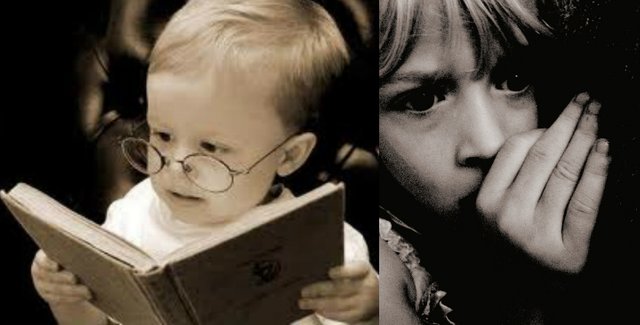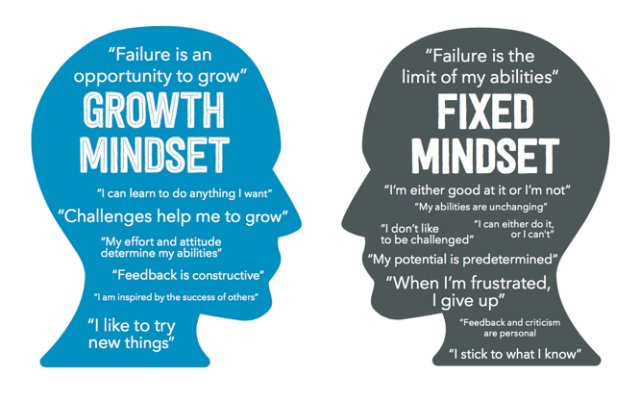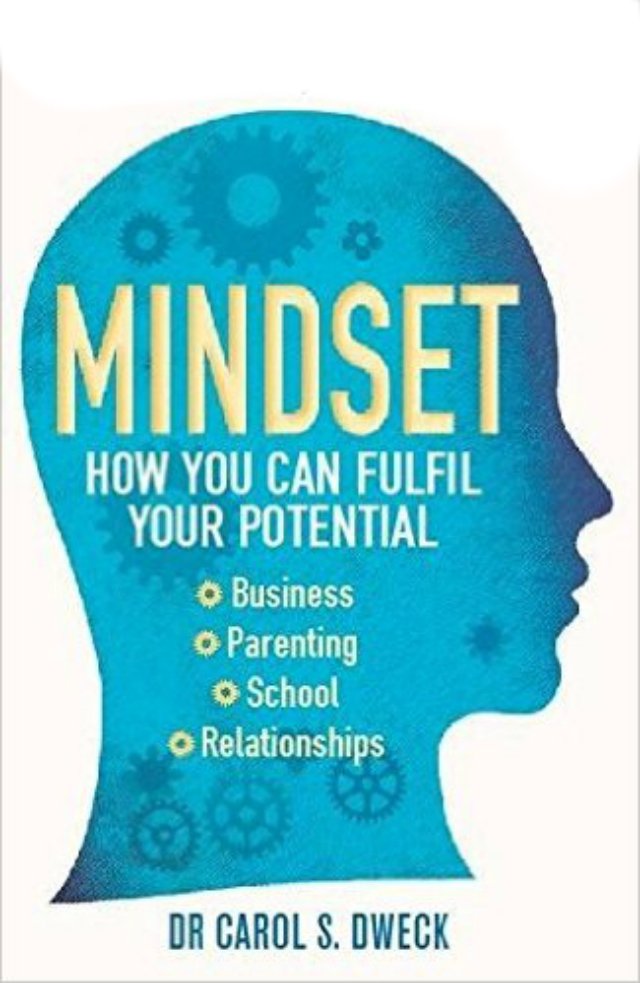Mindset: Raising Your IQ Through The Power Of Speech - Or How To Completely Ruin Your Children

Are the words you speak unwittingly sabotaging yourself, and your children? Nobody wants to say or do things that do psychological harm, however, that is exactly what a lot of us are doing, without even realising it.
A couple of days ago, I wrote an article called No Such Thing As Natural Talent - Exploding The Myth Of The Gifted, in it I discussed how the concept of natural talent, was essentially flawed. In this article I would like to go further, and explore the difference between the fixed and growth mindsets.
It turns out, that the idea of natural talent, is very much borne out of the fixed mindset. Identified by Dr. Carol Dweck, in her excellent book Mindset. In her book, Dweck shows how the wrong kind of praise given to your children, can actually do them more harm than good, and how the right kind, can increase their IQ.
The Unchanging Land Of The Fixed
Let me start asking by asking you a short series of questions; it's just me and you now, so you can answer them honestly.
- Do you believe your IQ is set; or can it improve?
- Do you believe that children either show an aptitude for something early on; or if they don't it is unlikely they will excel in that field in later life?
- Do you believe that there are some sports, that you simply have to have a genetic predisposition to play; or can anyone learn to play anything well?
- Are there certain things you are good at, and others you are bad at; and that won't change, regardless of your personal efforts?
Let's take a look at the first question; IQ, standing for Intelligence Quotient, ever since the testing for IQ was introduced in France in 1904 by Alfred Binet (1857-1911) and Theodore Simon (1873-1961), the topic has been surrounded in controversy.
Many commentators, have accused IQ tests as being culturally and socially bias. They argue that perfectly intelligent children and adults, can be marked lower, simply by result of not living in a specific environment.
So how did you answer the question? Dr. Dweck discovered, that people who answer the question; "..no, your IQ is set and cannot be changed. have a fixed mindset, whereas people who feel that it can be improved upon, have a growth mindset.
What is interesting about this, is that, this is true for both children and adults, some children feel that they are either good at something, or they are not, and they accept this very early on in their lives, sometimes as young as just 3 years old!
So why is that such a bad thing? I hear you ask; surely, some people are good at certain stuff, others are not. Best to find out which ones, so you can move onto something that you can be good at; no?
Maybe so, however there is something more serious, and more damaging, lying at the heart of that mindset.
Impossible Is Something
Everyone is a genius. But if you judge a fish by its ability to climb a tree, it will live its whole life believing that it is stupid.
--Mathew Kelly
"Hang on a second Cryptogee! You can't argue with the above statement, no matter how much the fish wants to, it will NEVER be able to climb a tree!!"
OK, OK, yes, I know; calm down, of course the above statement is true; it is however, an analogy. Human beings are not fish; right? I mean we can both agree on that; can't we? If not, it will be very difficult to continue on with this discussion!
There are some times, when the above analogy will directly translate to the human condition. For instance, as a child, I wanted to be a fighter pilot (not realising that actually meant going to war and killing people).
However in order to join the British Air force, you need to have 20/20 vision. Whilst I may have been able to hide my shortsightedness for a while. I'm sure the very real sight tests would have uncovered my disability, and I would have been refused entrance.
So clearly, I am not talking about things that are actually impossible to do; fish can't climb trees, humans can't fly without the aid of technology.
Cryptogee can't make a point in under 1800 words...
Stunting Your Inner Child With A Fixed Mindset
Some of us have children, and if we don't, then we can all at least lay claim to having been children at one point in our lives. We either want the best for our children, or our parents, wanted, and in some cases still want, the best for us.
In the book, Mindset, Carol Dweck cites a very interesting experiment, which shines a light on the importance of the subtle use of language, when dealing with ourselves and our children.
A group of 14 year old high school children were given a test that was actually meant to be for university level students. As expected the children found the exam difficult; afterwards, they filtered out the children who did well in the test, and then split them into two groups.
Here's the interesting part; they divided them into the groups, simply by the sentence they spoke to them as they handed their results back. The words were designed to put them in either a fixed mindset or a growth one.
Wow 85% you must be really good at this!
Wow 85% you must have worked really hard on this!
Note the subtle difference; one phrase praises ability (fixed), the other praises effort (growth). The experimenters, then went on to ask how the children enjoyed the test, and what they thought about it.
The ones who had been handed the results with phrase number 1. reported back that they did not enjoy the test at all. They felt it was very hard and stressful; when asked if they would like to try and even harder test, most of them declined.
On the other hand, the children who had been given their results with the second phrase, reported back on, how challenging it was, and how they enjoyed that challenge. They almost all, decided that they would indeed, like to try a harder test.
PAUSE FOR THOUGHT...
Let's really analyse this now, because this is important. The experimenters, did not know the children beforehand. They did not select them on whether they thought they were growth or fixed minded.
They simply SAID something to them, as they handed back the children's test results. The phrase spoken to them, was what PUT them into a fixed or growth mindset.
The really astounding results came later; when they asked the children to write what they thought of the test, to help future students who would also take it.
The phrase 1 children; you must be really good at this, lied about how well they did in the test. Around 40% of them decided to give themselves higher marks.
The thinking is, that they were told that they were smart, therefore, they themselves, didn't think that the marks they achieved, were that of a smart person.
So what the experiment uncovered, was that by praising our children's abilities, over their work ethic; we make them feel dumber, whilst acting smarter.
The experiments and observations don't stop there; it has often been observed, that certain childhood proteges, who were outstanding in their field at highschool, suddenly just stop trying in college. This has been dubbed the; low effort syndrome, and is synonomous with a fixed mindset.
Unfortunately, we have discovered that, when we praise abilities, the child (or adult), has a fear of not being able to live up to that praise again. Therefore, rather than try and improve, they attempt to protect their position as; the good one.
In other words; fixed-mindset individuals, try and avoid failure like the plague, as it will shatter previously held misconceptions about their general intelligence.
Whereas, children (or adults) who have their efforts praised, are not just more likely to succeed, but succeed with less neuroses. They aren't afraid of failure, simply because they don't view it in that way, they view failure as an opportunity to learn; rather than a judgement on their character.
Growing Into The Future
So how do we ensure that ours' and our children's minds, are put into a healthy, growth mindset? Well, for our kids it is easy; and the younger they are, the easier it is, we simply praise their effort, over their ability.
We can still tell them how proud we are, however we must focus our language on the work they put in, rather than the outcome of them doing well.
I myself have been doing this with my daughter, and the change in her is quite remarkable, it has also led me to realise, which areas of my life that I have viewed with a fixed mindset, and those which I have viewed with a growth one.
So just remember;
child get's an A in class? Turn wow! You are so good! to Wow! I'm so proud of the work you've put in to get that A!
Wins a race? Turn, you are the best! To. All that practice is paying off! Imagine how much faster you can get if you train more!
...and so on.
Ultimately, this subject is too big to deal with in a Steemit article; if you want to find out more, I urge you to right-click the following (non-affiliated) link and open it in a new tab/window. It will take you to Dr. Carol Dweck's, Mindset book, it really is the most fascinating read, I highly recommend it.
I will be revisiting this subject in the near future, however for now, satisfy yourself by reading the book, and enjoy!
NOBODY IS COMPLETELY ONE OR THE OTHER, SO WHAT AREAS OF YOUR LIFE HAVE YOU HAD A FIXED MINDSET IN? WHICH ONES HAVE YOU BEEN MORE GROWTH ORIENTATED? AS EVER, LET ME KNOW BELOW!
Cryptogee






Superb article !
Hmmm...
In everything academic, I've always had a growth mindset, I own several books on the art of learning to learn, and psychology in general. I, of course, haven't read most of them yet as I am VERY easy to distract...
Which leads me to my main fixed mindsets, one of them being that my attention span is limited, and can't change. (Seeing as I'm saying this, kind of means I've recently realized that my attention span CAN be increased through training !)
Another fixed mindset is my... "artistic" persuasion. I suck at art. That's how I've always thought of it. I just have no "talent" in that area. My writing is HORRID, nearly incomprehensible (though just comprehensible enough for me to pass my exams, seeing as I've gotten as far as a beginning a Master's degree XS)
And I'm sure to have a couple of other limited mindsets, through becoming aware of them IS kind of the first step to fixing them XD
I'd honestly like to spend the rest of my life improving every single aspect of myself, but given our world still requires us to gain sustenance and shelter by working, I'm kind of limited for now (I plan on launching some kind of online business at SOME point, to provide for me, but have no freaking idea what skills I have XS)
I think you have identified the main problem, and that is your attention span. I would work on that, meditation is a brilliant method to focus the mind. If you can concentrate on your breathing for minutes at a time, then focusing on more interesting stuff should be a breeze!
Also get some kind of time management software; I recommend Trello, as it is free and uses a great hierarchical system, to organise your tasks and thoughts.
Also accept that, even though you're growth minded, it's ok to suck at something. If you suck at art, it's because you're not drawing everyday, maybe you simply don't have time to do that; or don't want to. I think that is a very important aspect of being growth orientated, simply letting go, and saying; "I'm fine with not being that great at that..." Whatever that, is.
Cg
First of all, congratulations for the article. I'm an adult (at least i try to look like one) and i have 2 kids, 2yo 8mo. I consider myself generally Growth oriented in every thing that doesn't affect my economical and professional life. For example i learned Spanish by my self i'm always trying to learn new things, in fact its hard for me to focus in one single subject. I love to travel and try new things, have a need for the unknown in fact. But when it comes to work I'm in a Fixed Mindset, maybe because its not easy to get a job or just because i need money, i tend to be to scared of failure in that area of my life.
This probably does me more harm than good but until now i wasent able of changing my mindset in that particular area.
Tanks and keep up the good work
Hi,
Thanks for your comments; and yes you do sound very growth orientated. I would highly recommend the book, it really help me identify the areas I was being fixed minded in.
Like you, I have long considered myself growth orientated, so I was shocked to find out the kind of fixed minded things I had been saying to my daughter. I have fixed those now; and the change in her is remarkable.
Cg
I think most parents have a fixed mindset for any school work. They focus on the fact that the kid needs to have good grades so he could get in to a better school or get a better job. Rarely parents actually care what their kid has learned instead they just take a glance at the grades and think they know what's going on.
Exactly, as parents; and I have been guilty of this in the past, we tend to focus on the result, rather than the process.
I have fixed this now; and when my daughter tells me she got stuff wrong at school, I say; "Excellent! That means you are learning new stuff!" We then go on to talk about the challenges she's facing, and how we can work towards mitigating them.
Cg
Really nice read , I enjoyed this. A really nice book about this topic is Malcolm Gladwell's Blink: The Power of Thinking Without Thinking where he discusses the power of priming people and the effect it has on your performance.
Thanks, nice one, I'll have to check that one out :-)
Cg
Good read, great title.
Informative article
I agree we should be very careful about what we say to our children. My father didn't say encouraging things until l was a adult. I had to get a growth mindset much later in life because of it.
Perhaps he was vaguely aware of the perils of praising ability over effort, however didn't realise that effort praising was the way to go.
I'm glad that you did finally develop a growth-mindset; don't forget that part of that, is to keep working on it! :-)
Cg
upvoted you and its great to read all your posts because it adds a great skills and knowledge in myself, already followed you and inspired from your posts, hope that you also follow me back so that it will be a great pleasure for me and a big contribution from ur side for me , thanks kindly follow me aswell @shanzaylizay
I just love that study (based on the one phrase) and the results, so amazing the difference this makes. Wow, I'm going to share this with every parent I know! Great post @cryptogee and from my point of view, don't worry about length...there wasn't anything excessive here, all words necessary.
Thanks! Yes that study blew me away, and it made me realise we had been putting our daughter into a fixed mindset with her dance. Everyone (including us) had been telling her how good she was; and she gave it up.
Now we praise effort, and the results speak for themselves! :-)
Cg